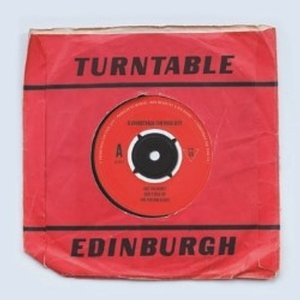Born from a series of workshops that aim to reduce loneliness and isolation amongst Scotland’s young people, Turntable uses storytelling and choice tracks from musician Michael John McCarthy’s vinyl collection to demonstrate what music means to each of us. Playing different songs from his records prompts anecdotes from McCarthy about his great aunt Kitty’s life, his move to Glasgow, and also people he has met during the Edinburgh Festival Fringe. We in the audience are asked to share with each other what we associate with our own favourite songs. “Music is an alternative to a diary,” says McCarthy in one aside.
By hearing about each other’s audio library, we are reminded that music is both personal and communal. Everyone has a song that conjures a story or a place. Music informs our histories and identities, and how we all feel about this artform brings us together. Finding a song in common is an added bonus. McCarthy’s own shared love for Irish bands like The Clancy Brothers with Kitty helps two individuals at opposite ends of the political spectrum (a conservative Catholic and a liberal lapsed Catholic) empathise better with each other’s views. Brought together like this, we can see how Turntable’s workshops can help lonely teenagers.
One of the highlights is when playwright David Greig joins McCarthy on the stage. He is invited to select a favourite record, and taken by McCarthy’s suggestion that music can be evocative of place, he chooses The Pastels. The show takes a nostalgic turn, as we imagine an Edinburgh of Greig’s youth that no longer exists. Turntable succeeds in showing the power of music – the ways that it summons people and settings – and makes a fitting sentimental tribute to McCarthy’s relationship with his great aunt.
